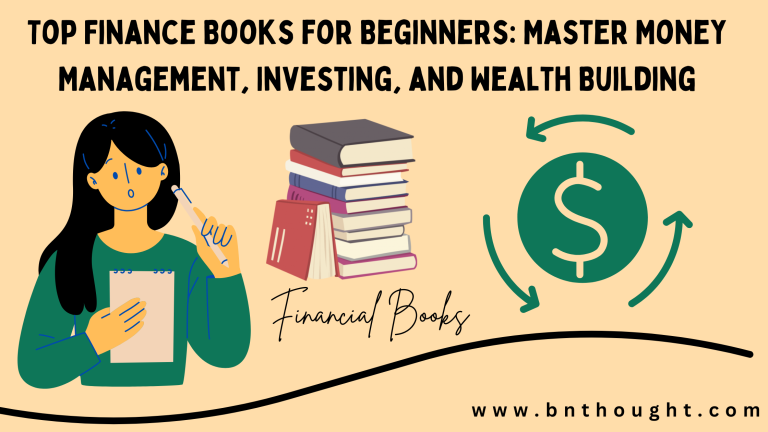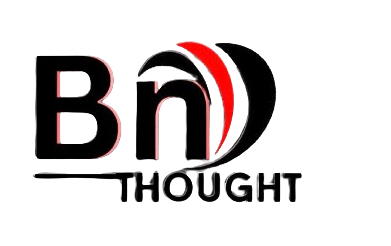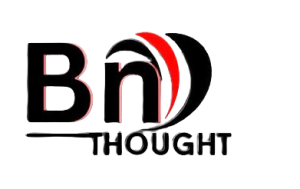
Top Finance Books For Beginners. Managing money wisely is a skill everyone should learn – yet most people never get a proper financial education. If you’re new to personal finance, investing, or wealth-building, the right books can change your life.
In this guide, we’ll look at the best finance books for beginners.
(Disclosure: This post contains affiliate links. If you purchase through these links, we may earn a small commission at no extra cost to you. This helps support our blog and allows us to continue providing valuable content.)
Top Finance Books For Beginners
Why Should Beginners Read Finance Books?
Before diving into the recommendations, let’s understand why these books matter:
Learn Money Basics – Many people struggle with budgeting, saving, and avoiding debt. Finance books break down these concepts in simple terms.
Avoid Costly Mistakes – Bad financial habits (like high-interest debt or impulsive spending) can derail your future. These books teach smarter choices.
Start Investing Early – Compound interest works best when you start young. Beginner-friendly investing books demystify stocks, bonds, and index funds.
Build Long-Term Wealth – Wealth isn’t about luck—it’s about habits. The right books show you how millionaires think and act.
Now, let’s explore the best finance books for beginners!
1. “Rich Dad Poor Dad” by Robert Kiyosaki
(Personal Finance | Mindset Shift | Wealth Building)
Why Read It?
This classic book contrasts two financial mindsets: Kiyosaki’s “Rich Dad” (who built wealth through assets) and his “Poor Dad” (who relied on a paycheck). The key lesson? “The rich don’t work for money—money works for them.”
Key Takeaways:
The difference between assets (things that make you money) and liabilities (things that cost you money).
Why traditional education doesn’t teach financial literacy.
How to escape the “rat race” by investing in income-generating assets.
2. “The Total Money Makeover” by Dave Ramsey
(Debt-Free Living | Budgeting | Financial Discipline)
Why Read It?
If you’re drowning in debt, Dave Ramsey’s “7 Baby Steps” will help you take control. His no-nonsense approach focuses on getting out of debt, saving, and building wealth systematically.
Key Takeaways:
The “Debt Snowball” method (pay off smallest debts first for quick wins).
Why emergency funds are non-negotiable.
How to live on a budget without feeling deprived.
3. “The Little Book of Common Sense Investing” by John C. Bogle
(Investing | Index Funds | Long-Term Wealth)
Why Read It?
John Bogle, founder of Vanguard, revolutionized investing with low-cost index funds. This book explains why most people fail at stock picking and how passive investing beats active trading.
Key Takeaways:
Why index funds outperform most mutual funds.
The power of compound interest over time.
How to avoid costly investment fees and scams.
4. “I Will Teach You to Be Rich” by Ramit Sethi
(Personal Finance for Millennials | Automated Money Management)
Why Read It?
Ramit Sethi’s approach is no-BS, practical, and guilt-free. He teaches how to automate finances, negotiate salaries, and spend lavishly on what you love while cutting costs elsewhere.
Key Takeaways:
The 85% solution (good enough beats perfection).
How to negotiate bills and bank fees.
Why conscious spending is better than extreme frugality.
5. “The Psychology of Money” by Morgan Housel
(Behavioral Finance | Money Mindset | Risk Management)
Why Read It?
Money isn’t just about math—it’s about emotions, behavior, and psychology. Housel shares 19 short stories explaining why people make irrational financial decisions.
Key Takeaways:
“Wealth is what you don’t see” (hidden sacrifices behind success).
The role of luck and risk in financial outcomes.
Why long-term thinking beats short-term speculation.
More Great Finance Books for Beginners
“Your Money or Your Life” by Vicki Robin – Redefines money as “life energy.”
“The Millionaire Next Door” by Thomas J. Stanley – Reveals real millionaire habits.
“Broke Millennial” by Erin Lowry – A step-by-step guide for young adults.
Best Finance Books for Beginners | Top Picks 2024 – 2030 . click here.. Conclusion
Reading just one or two of these books can transform your financial future. Whether you want to escape debt, invest smarter, or build wealth, these beginner-friendly books provide the roadmap.
Which one will you read first? Let us know in the comments!
(Disclosure: We may earn a commission if you purchase through our links—thanks for supporting our blog!)

